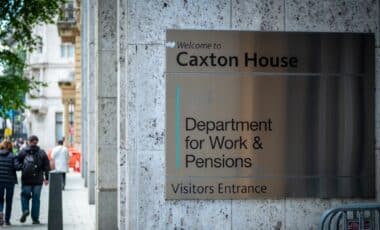In England, people must wait until 66—the state pension age—before they qualify for a free bus pass. In contrast, residents of Scotland, Wales, and Northern Ireland receive free bus travel from 60, thanks to policies set by their devolved governments. This inequality has sparked frustration, leading to calls for a nationwide standard in England.
A petition demanding that free bus travel begin at 60 across England has gained significant traction, surpassing 16,000 signatures. If it reaches 100,000 signatures, it could be debated in Parliament. The Department for Transport (DfT) has responded, expressing concerns over financial sustainability, but campaigners argue that the current system is unfair and should be reformed.
Petition Calls for Equal Access to Free Bus Travel
The petition, launched by Karen Hickman, argues that it is unjust for residents of England—outside of London and Merseyside, where local concessions already allow free travel from 60—to have to wait until 66 for the same benefit. Many supporters highlight that older people rely more on public transport and that free travel from 60 would help combat isolation and improve quality of life.
The petition states:
“We call on the Government to extend free bus travel to all people over 60 years old in England outside London. We believe the current situation is unjust and we want equality for everyone over 60.”
Campaigners stress that many people over 60 reduce their car use due to health concerns or financial constraints. With the cost of living rising, free bus passes would allow them to stay mobile, attend medical appointments, and maintain social connections, which are vital for mental and physical well-being.
Government Response: Financial Viability at the Centre of the Debate
The Department for Transport has responded cautiously to the petition, warning that any changes to the scheme must be carefully assessed in terms of cost.
“The English National Concessionary Travel Scheme costs around £700 million annually. Any changes to the statutory scheme must be carefully considered for their impact on its financial sustainability.”
The government acknowledges the benefits of free travel but stresses that funding is limited.
“The government wants everyone to have access to public transport and is committed to improving services. We also recognise the importance of the English National Concessionary Travel Scheme (ENCTS) in supporting local bus travel, assisting with access to essential local services, and helping those who use it to stay active and avoid isolation.”
Currently, the ENCTS provides free off-peak bus travel to those of state pension age (66) or those with eligible disabilities. Expanding this benefit to include all over-60s would increase costs significantly, according to the DfT:
“The ENCTS provides free off-peak bus travel to those with eligible disabilities and those of state pension age, currently sixty-six. The ENCTS costs around £700 million annually, and any changes to the statutory obligations, such as lowering the age of eligibility, would therefore need to be carefully considered for its impact on the scheme’s financial sustainability.”
Local Authority Discretion and Regional Disparities
One of the key points in this debate is the role of local authorities. While some areas—such as London and Merseyside—already offer free bus passes from 60, others strictly follow the national rule of 66. The DfT highlighted that local councils can choose to introduce additional concessions at their own expense.
“Local authorities in England do have the power to offer concessions in addition to their statutory obligations, for example, by extending the age of eligibility for the older persons’ bus pass. These are additional local concessions provided and funded by local authorities from local resources, depending on the needs and priorities of each area.”
This means that bus pass eligibility varies widely across England, leading to a postcode lottery. Many campaigners argue that this unequal access creates unnecessary confusion and unfairly disadvantages those living outside major metropolitan areas.
The Impact of Devolution: Why England Is Out of Step with the Rest of the UK
Unlike England, where eligibility is tied to the state pension age, Scotland, Wales, and Northern Ireland have chosen to set a lower threshold of 60. This is because transport policy is devolved, allowing each nation to set its own rules.
The Department for Transport acknowledged this disparity but emphasised that each nation operates independently:
“Concessionary travel is a devolved policy area and as such, the eligibility age for the bus pass differs between the devolved nations of the United Kingdom. This means, in effect, that there are different schemes in England, Scotland, Wales, and Northern Ireland, so the administrative arrangements are entirely separate.”
Campaigners argue that this patchwork approach creates unnecessary inequalities, particularly for those who live near the borders of devolved nations, where bus pass eligibility rules change from one side of the border to the other.
Future Prospects: Could the Government Change Its Stance?
While the government has not signalled an imminent change to the national eligibility age, it has allocated £1 billion to improving bus services, including funds that local authorities can use to extend free travel.
“At the Budget on 30 October, the government confirmed a £1 billion boost for buses, of which £712 million has been allocated to local authorities to support and improve bus services. Funding allocated to local authorities to improve services for passengers can be used in whichever way they wish. This could include extending the discretionary concessions available in the local area.”
This means that some local councils may choose to lower the eligibility age on a regional basis, even if a nationwide policy shift remains unlikely in the short term.
For now, the petition continues to gain momentum, with thousands of people calling on the government to level the playing field across England. Whether this push for equal access to free bus travel will lead to policy change remains uncertain, but the growing public pressure is making it harder for the government to ignore the issue.









